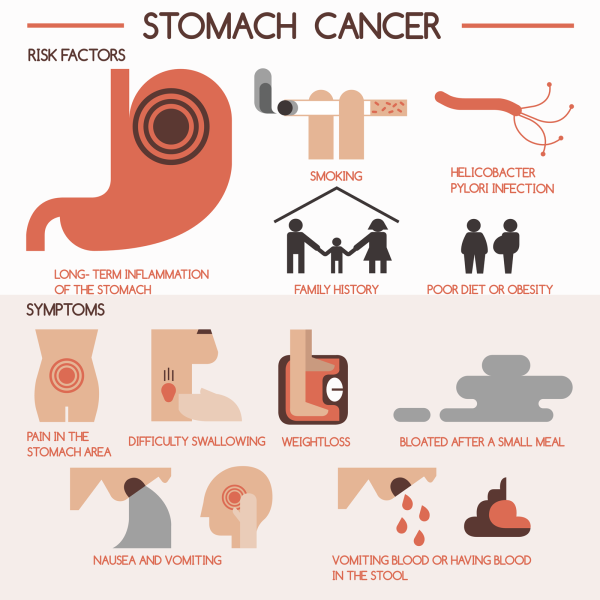| Previous stomach surgery, particularly procedures that significantly alter stomach anatomy or function like gastrectomy (partial or total stomach removal) or bariatric surgery (e.g., gastric bypass, sleeve gastrectomy), can increase stomach cancer risk. These surgeries can disrupt the normal protective mechanisms of the stomach, leading to changes in the stomach's lining and bacterial composition, potentially promoting the development of precancerous lesions and cancer. Additionally, the altered digestive processes and resulting nutritional deficiencies post-surgery might contribute to an increased risk. Previous stomach surgery, particularly certain types, can increase the risk of stomach cancer in several ways: - Changes in Gastric Anatomy and Physiology: Procedures like gastrectomy (partial or total stomach removal) or vagotomy (severing of the vagus nerve) significantly alter the stomach's structure and function. This can lead to:
- Stasis and Bacterial Overgrowth: Changes in gastric emptying and motility can cause food to remain in the stomach longer, creating an environment conducive to bacterial overgrowth. Certain bacteria, such as *Helicobacter pylori*, are linked to an increased risk of stomach cancer.
- Metaplasia and Dysplasia: The altered environment post-surgery can promote changes in the lining of the stomach (metaplasia) which can progress to pre-cancerous changes (dysplasia) and eventually cancer. This is particularly relevant after procedures that result in a smaller or less functional stomach.
- Chronic Inflammation: Surgical alterations can cause chronic inflammation, a known risk factor for cancer development in many organs, including the stomach.
- Nutritional Deficiencies: Gastric surgeries, especially those involving significant resection, can interfere with the absorption of essential nutrients like vitamin B12 and iron. These deficiencies can weaken the immune system and potentially increase susceptibility to cancer.
- Scar Tissue and Cancer Development: Scar tissue from the surgery itself can create an environment that facilitates cancer development, though the exact mechanisms are not fully understood.
- Type of Surgery Matters: The risk is not uniform across all stomach surgeries. Total gastrectomy carries a much higher risk than partial gastrectomy. The extent of the resection and the specific surgical technique employed all influence the risk.
It's crucial to understand that while previous stomach surgery increases the *risk* of stomach cancer, it doesn't guarantee its development. Regular follow-up with a physician, including endoscopic surveillance (e.g., endoscopy with biopsies), is highly recommended for individuals who have undergone stomach surgery to detect any precancerous or cancerous changes early. 
Tags: Dysplasia Metaplasia Nutritional Deficiencies Stomach Cancer Stomach Surgery  
|  1,330
1,330  0
0  0
0  3350
3350 